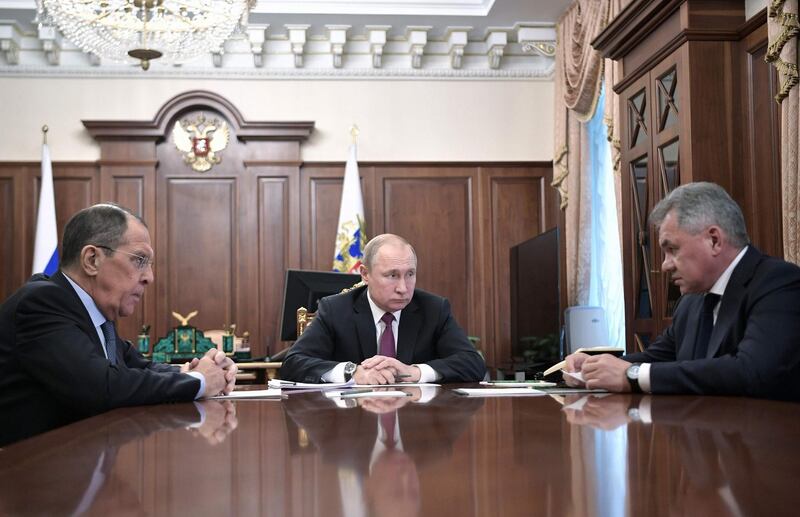Since Russia annexed Crimea from Ukraine in early 2014, we have been forced to question whether the Cold War ever really ended. Those who suggest it did not will feel vindicated by Donald Trump’s decision on Friday to suspend a 1987 arms control treaty that eliminated whole arsenals of nuclear missiles and triggered a thaw in US-Russia relations, under Mikhail Gorbachev and Ronald Reagan.
There are suggestions, endorsed by Nato Secretary-General Jens Stoltenberg, that Russia has violated the Intermediate-Range Nuclear Forces treaty, with its new 9M729 cruise missile. But by scrapping a cornerstone of the international security apparatus, prompting Moscow to withdraw from the treaty on Saturday, Mr Trump might have triggered a rush to proliferate once more.
Russia’s President Vladimir Putin quickly announced Moscow would start growing its nuclear armoury, while the US is already in the research phase for a new missile. The 2010 New Start agreement, which capped the number of warheads that both could possess, and which must be renewed before 2021, now appears to be under threat. As the EU’s Federica Mogherini warned, Europe is at risk of “going back to being a battlefield” for global superpowers.
Echoes of the Cold War are visible beyond these imperilled treaties. Concerns over President Putin’s intentions are growing in Europe, underlined by Russian military exercises near the Balkans and aggression in Ukraine and Georgia. Meanwhile, a siege mentality continues to fester in the corridors of the Kremlin.
In December, US National Security Adviser John Bolton laid out Washington’s Africa strategy. Analysts were quick to note that, at its core, the policy sought to counter Russian and Chinese influence in sub-Saharan Africa – another former theatre of the Cold War.
And these pages have written often of the tussle between the US and Russia playing out in Syria.
Venezuela is the latest victim. With Washington backing the self-declared interim president Juan Guaido, and Moscow seeking to preserve the misrule of incumbent Nicolas Maduro, the crisis in Caracas has the air of a Cold War confrontation – a narrative reportedly promulgated by Russian state television.
Proxy disputes are one thing, but nuclear proliferation is quite another. A dangerous arms race between Russia and the US may well be under way.





